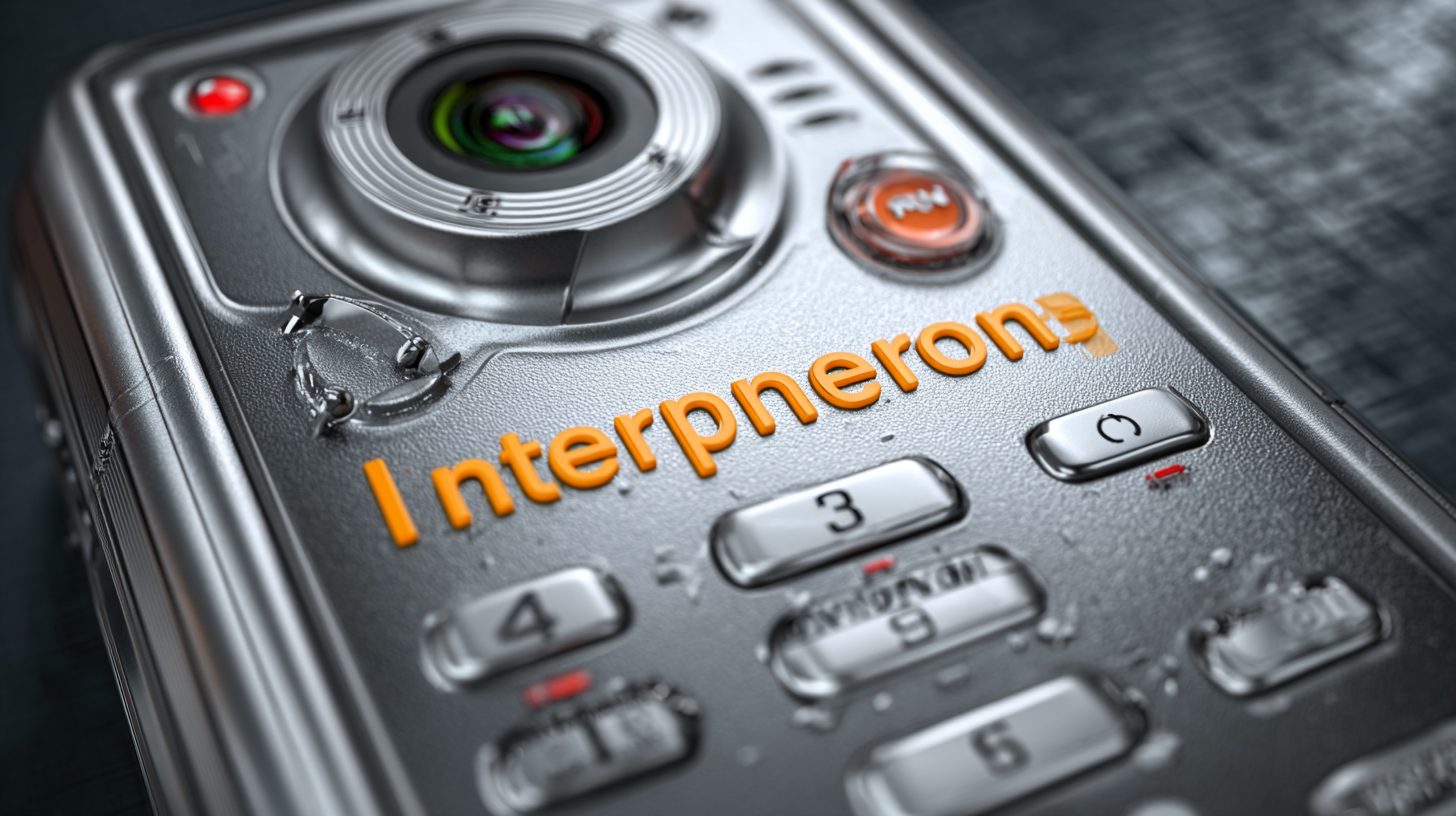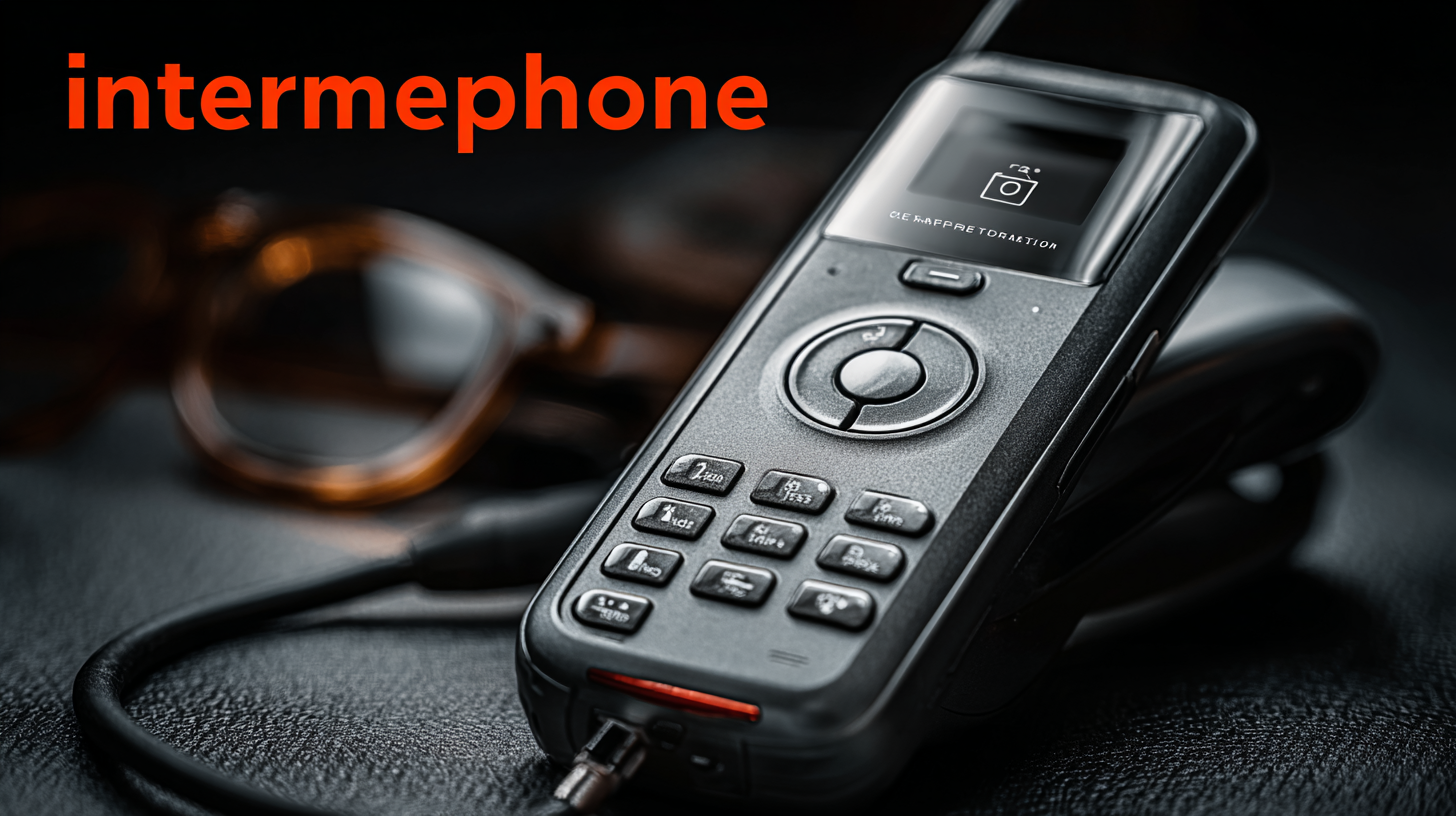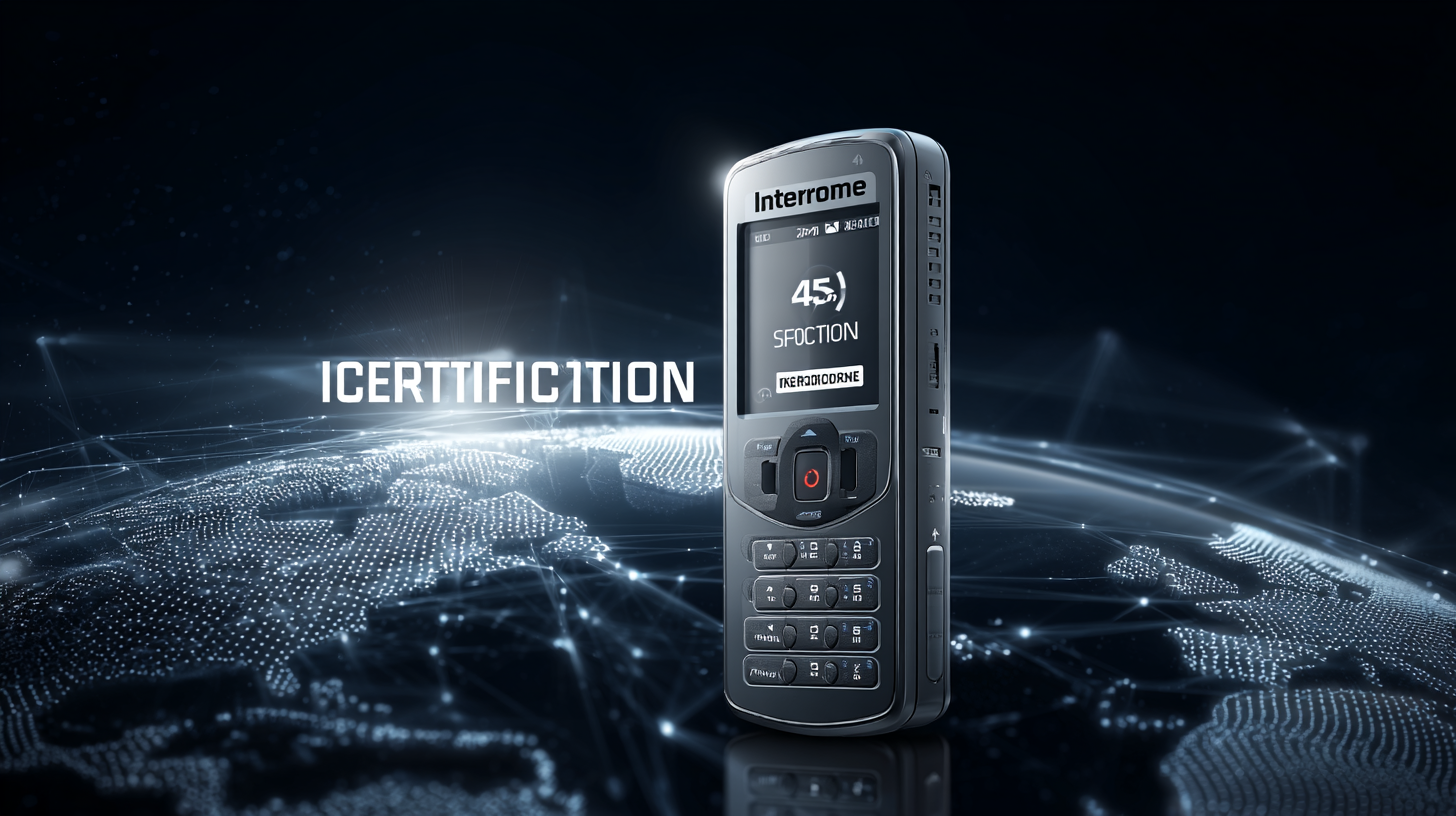In the rapidly evolving landscape of global trade, the demand for sophisticated communication tools has surged, particularly for devices like the Interphone With Camera. According to a report by MarketsandMarkets, the global intercom system market is projected to reach USD 1.9 billion by 2025, growing at a CAGR of 10.5%. This growth is fueled by the increasing importance of security and real-time communication in both residential and commercial sectors. The Interphone With Camera not only enhances security but also facilitates seamless communication, making it an essential tool in today’s interconnected world. In 2023, understanding the various certifications available for these devices is crucial for businesses looking to meet safety and performance standards, ensuring they choose the best options available.

This blog will delve into the top five certifications that highlight the features and applicability of different interphones with cameras, thus helping consumers and businesses navigate their choices effectively.
In 2023, the intercom industry is witnessing significant changes driven by the adoption of advanced certification standards. These standards not only enhance product reliability but also ensure that devices meet stringent performance metrics crucial for various applications, particularly in security and communication sectors. Certifications such as ISO, CE, and FCC take center stage, emphasizing the importance of compliance as a key factor in the increasingly competitive wireless intercom market.
As the global wireless intercom market is projected to grow to $12.58 billion by 2032, manufacturers must align their production processes with these industry standards. The push for innovation alongside regulatory compliance is critical; it promotes the development of interphones equipped with high-definition cameras for enhanced security and monitoring capabilities. The integration of such features is reshaping customer expectations, driving manufacturers to prioritize quality and cut-edge technology in their offerings, which consequently influences the overall market dynamics.
In the rapidly expanding global market for video intercom devices, understanding the key certifications can significantly enhance trade opportunities. As the market is projected to grow from USD 25.8 billion in 2024 to an impressive USD 106.5 billion by 2034, businesses must prioritize compliance with essential certifications to strengthen their market position.
Certifications not only ensure that intercom products meet high quality and safety standards, but they also facilitate smoother entry into diverse international markets. Key certifications like CE, FCC, and UL are pivotal, as they indicate compliance with regional regulations and build consumer trust. Companies that invest in obtaining these certifications can effectively unlock new markets, allowing them to capitalize on the growing demand for advanced interphone systems featuring smart technology and integrated cameras. By aligning with these certification standards, businesses can enhance their competitiveness and drive sustained growth in the burgeoning video intercom sector.
As the intercom camera market rapidly evolves, manufacturers must navigate various compliance issues to ensure their products meet international standards. According to a 2022 report by MarketsandMarkets, the global intercom systems market is expected to reach $3 billion by 2025, highlighting the increasing demand for reliable and compliant devices. However, non-compliance with regulations such as CE marking in Europe or FCC certification in the United States can lead to costly delays and reputational damage.
To address common compliance issues, manufacturers should prioritize obtaining certifications that demonstrate adherence to safety and quality standards. For instance, ISO 9001 certification remains a cornerstone for quality management systems, ensuring that manufacturing processes meet customer and regulatory requirements. Additionally, adhering to RoHS (Restriction of Hazardous Substances) directives can enhance marketability, as consumers increasingly favor environmentally friendly products.
Tip: Regular audits and staff training on compliance standards can significantly reduce the risk of violations. Engaging with industry experts and attending relevant workshops can also provide valuable insights into the latest regulatory changes.
Incorporating robust testing protocols can further mitigate compliance issues. Manufacturers should implement thorough product testing against international safety standards, allowing for early detection of potential non-compliance aspects during the development phase. This proactive approach not only ensures product safety but also builds consumer trust in a competitive market.

The landscape of intercom technology is rapidly evolving, driven by emerging trends and certification requirements. As we move into 2023, it's clear that advancements in wireless intercom systems are at the forefront, paving the way for greater flexibility and ease of use in both residential and commercial applications. Recent product introductions have showcased innovations designed to enhance user experience, such as handheld transceivers that prioritize mobility and accessibility in communication.
Alongside the technological advancements, certification requirements are becoming increasingly vital for manufacturers to ensure that their products meet stringent quality and performance standards. The launch of next-generation intercoms reflects a commitment to achieving these certifications, which not only enhance product reliability but also instill confidence among consumers. With companies introducing cutting-edge intercom solutions tailored for specific markets, the demand for certified and innovative products will likely shape the future of global trade in intercom technology, making them essential considerations for businesses and consumers alike.

Quality certifications play a crucial role in establishing consumer trust and driving sales, particularly in the highly competitive market of electronic devices. As consumers become more discerning about the products they purchase, the presence of recognized certifications, such as safety standards and quality seals, becomes a significant factor in their decision-making process. This is particularly evident in the market for interphones with cameras, where certifications can reassure buyers about product reliability, safety, and quality.
In recent years, the automotive testing and certification market has seen a notable increase, projected to grow significantly due to rising safety standards and consumer demand for quality assurance. This trend underscores the importance of certification not just in automotive applications but across various industries. As brands strive to meet regulatory requirements and consumer expectations, the impact of certifications on sales and brand loyalty cannot be overstated. Brands that prioritize compliance with quality standards are likely to enjoy enhanced customer trust, leading to increased sales and a strong competitive edge in their respective markets.
